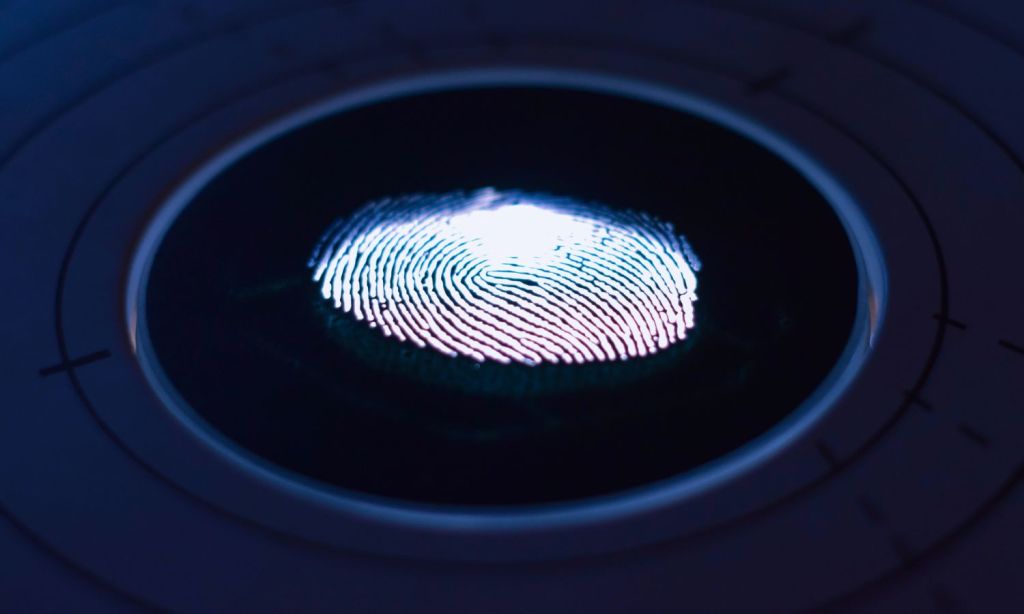Finding a perp’s fingerprints at the scene of the crime and matching them to a suspect has been a tried and true method of detective work and a key Hollywood trope for decades. AI may have just problematized that assumption — and the entire world of criminal justice as we know it.
Unlike a lot of big-screen law enforcement activity, the fingerprint truism holds up — police and forensics teams around the world agree that fingerprints are unique. Not only are they thought to be unique to each individual, each fingerprint is unique to each finger. However, this can create a problem when a suspect leaves fingerprints from two different fingers at two different crime scenes because there is no way to match them and cases often go cold.
This is why forensics experts at Colombia University in the US were stunned when an AI programme trained on tens of thousands of fingerprints somehow matched prints from different fingers to their owner.
“We don’t know for sure how the AI does it,” Professor Hod Lipson, a roboticist at Columbia University who supervised the study, told the BBC.
Colombia Engieering’s AI system was trained on a database of over 60,000 fingerprints and began to correctly match fingerprints to their owners with an accuracy of 77%. However, when they went to present their findings, their evidence was rejected for being simply too outlandish.
“It is well known that every fingerprint is unique,” an anonymous editor concluded upon rejecting their work, presuming some kind of mistake had been made. The team kept improving and kept revising their model but it continued to be rejected as fantasy. Eventually, Lipson came out to bat for their findings.
“I don’t normally argue editorial decisions, but this finding was too important to ignore,” Lipson said. “If this information tips the balance, then I imagine that cold cases could be revived, and even that innocent people could be acquitted.”
Are Fingerprints Unique?
Modern fingerprint identification was developed in the 19th century and, since then, has worked on the basis that fingerprints are a unique identifier for each person. However, while fingerprints are certainly highly individualised, it’s a borderline impossible concept to prove.
The science of forensics has been moving away from fingerprinting as a rock-solid means of identification for several decades. Prints aren’t often complete and the number of points of similarity needed for a match varies between jurisdictions. In the US, at least 23 people have been convicted on fingerprint evidence that later turned out to be false.
That said, many judges still view fingerprint evidence as up there with DNA and rely heavily on it in their judgements. What the latest development from Colombia implies is that this ought not to be the case.
While the current model is able to accurately identify the owners of fingerprints, for the team at Colombia, this is only just the beginning.
“Just imagine how well this will perform once it’s trained on millions, instead of thousands of fingerprints,” Aniv Ray from Colombia Engineering has said.
For starters, they need to work out exactly how the programme is making its correct assessments. Traditional fingerprint analysis looks at the individual ridges in a print and how those fork and end. What the programme appears to be doing, is using “something else, related to the angles and curvatures of the swirls and loops in the centre of the fingerprint,” undergraduate senior Gabe Guo, who began the project, has said.
The team has said that the tool is not yet accurate enough to decide a case, but it can help prioritise leads in ambiguous situations.
As for the technology side of things, Lipson notes that this is a perfect example of just what AI can offer to the world.
“Many people think that AI cannot really make new discoveries–that it just regurgitates knowledge,” he said. “But this research is an example of how even a fairly simple AI, given a fairly plain dataset that the research community has had lying around for years, can provide insights that have eluded experts for decades.”
He added, “Even more exciting is the fact that an undergraduate student, with no background in forensics whatsoever, can use AI to successfully challenge a widely held belief of an entire field. We are about to experience an explosion of AI-led scientific discovery by non-experts, and the expert community, including academia, needs to get ready.”
Related: The Future of AI in 2024
Related: Danish AI Researchers Say They Can Predict When You’ll Die
Read more stories from The Latch and subscribe to our email newsletter.

